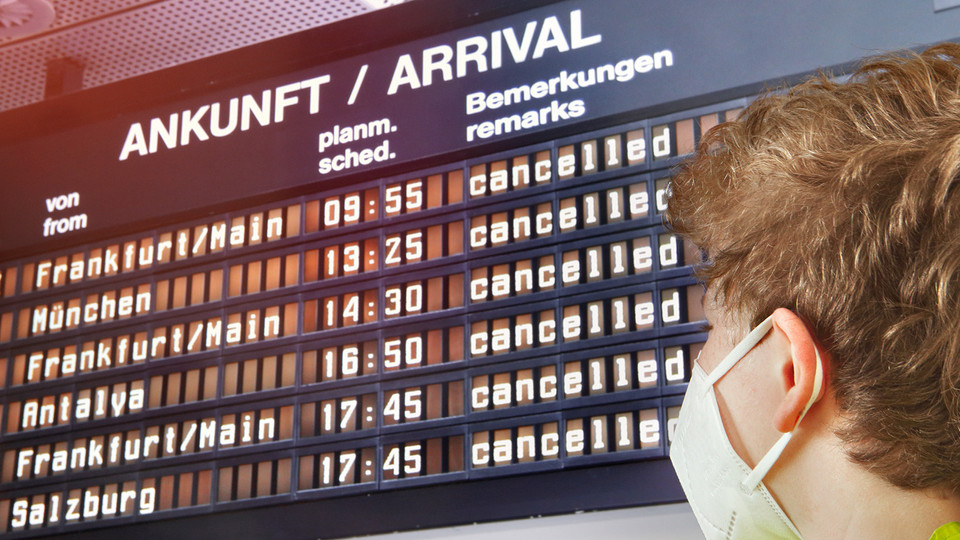Jul 30, 2020 Jan Uphues
ShareThe summer season is in high gear. Aircraft, hotels, beaches and cruise ships are packed and all capacities are at their limits. All airport staff is still trying to squeeze the last bit of efficiency out of the available resources to avoid flight cancellations. It was a glorious year 2019. Currently, European airports are, on average, at 30 percent capacity and American airports are at 50 percent capacity. Yes, the industry is slowly recovering.
FLIGHT CANCELLATIONS ALL OVER EUROPE
There is a development, however, which, although it’s crisis-related, has little to do with COVID-19. A huge number of scheduled flights are cancelled weeks or just days before departure. Currently, the airlines are probably losing money on flights, rather than making a profit. It’s very costly to implement the many new legal requirements and regulations to contain the pandemic. And above all, the booking figures and the overall fleet utilization are still too low to make any profit. This year, the challenge for airlines and airports is to maintain at least some liquidity and stay in business. That’s why they offer flights – but obviously, only the well-booked ones are operated. Especially these days, no airline can afford to depart with an almost empty aircraft. The consequence is that maximum flexibility is required not only from planners, dispatchers, ground handlers and aircrew, but also from the passengers, and for some it’s too much. Just imagine Passenger X, along with her husband and children, wants to take a pre-booked vacation. The children are on school holidays, so the family is dependent on exactly this time slot and cannot postpone indefinitely. A colleague of mine just had her trip to Greece cancelled which was planned for her entire family – a very annoying situation. It doesn’t seem to be an individual case. In an unrepresentative survey on Instagram, about half of the respondents said that flights booked for the period after 16 June had been cancelled.
According to Eurowings, the main problem is the uncertainty regarding the actual demand. It’s extremely difficult to predict how many passengers, from which airports, to which destination and date, will actually take their booked flight. There are still many "no-shows", which means passengers who don’t show up for their booked flights, but didn’t cancel either, making planning difficult. In addition, in the current situation, it only makes sense to fly fully-booked. "Many flights that were originally planned for this year cannot take place because there are still travel restrictions for many countries or there is not enough demand on these routes," a Lufthansa Group spokesman said. As the weeks and months of the pandemic have passed, financial priorities have dictated the approach some airlines are taking to changing their schedule and cancelling flights. Against this background, most cancellations or postponements of individual flights seem to be unavoidable. This results in a highly unsatisfying situation for both customers and airlines, but hopefully just a short-lived transitional situation. But transition to where?
TRAVEL RELUCTANCE AS A CONSEQUENCE
Not least because of such measures – however understandable and even absolutely necessary they may be from a business point of view – many potential customers now have decided to travel within their own country or even cancel travelling in total for this year. Also, more and more business customers are discovering that many trips are not necessary but can be partially or temporarily replaced by video conferencing. This aspect in particular is only an acceleration of a process that was already gaining momentum before the Coronavirus. Whoever can now relies on the advantages of digitalization – a further disadvantage especially for the classic carriers which have served the longstanding and often profitable business connections. Routes such as Frankfurt-New York, London-Singapore or Munich-Dubai are strongly affected by this. In any case, the prediction made by many experts months ago seems to be verified: Long-haul flights will be most severely affected by the pandemic and will be the last to recover.
But what is the lesson to be learned from all this and what needs to be done now? Continue to wait for various vaccines and medicines that we do not know when they will arrive and how they will work? How should airports, airlines and authorities position themselves for the long-term?
Leading virologists have made remarkable statements addressing these questions in recent weeks. One of them is Prof. Hendrick Streeck, who, in recent months, has become well-known in Germany as one of the leading researchers in the fight against COVID-19. According to him, we should accept that we have to “live with the virus, that SARS-CoV-2 will become part of our everyday life. We should therefore not regard it as a permanent death threat, but also not underestimate it."
Sir Jeremy, a member of Sage, the UK government advisory body, said that even, “..if we have a vaccine or very good treatments, humanity will still be living with this virus for very many, many years.... decades to come." From the consultancy’s side, it’s McKinsey which says that, while it is too early to predict the long-term outcomes and trends prompted by the COVID-19 pandemic, the most likely scenarios suggest organizations will be operating in a next normal environment for the foreseeable future.
NEW BUSINESS MODELS
Assuming that the experts are not completely wrong, it’s mandatory for aviation to proceed to new procedures, new collaborations and new business models. No airline will be able to afford to fly permanently under the current circumstances with their specifications and their workload. Also as passengers, we will get used to many things and ultimately classify COVID-19 as one of several life risks to which we expose ourselves every time we leave our homes.
For airlines, further bankruptcies and declines will occur, but also new start-ups and new partnerships. Since many fleets will be drastically reduced in size, it’s likely that the share of old, less economically oriented aircraft will shrink and that the share of younger aircraft with lower fuel consumption and better digitization possibilities will increase. So let’s hope for the best (and just maybe prepare for the worst) …
Will the massive flight cancellations be a thing of the past? Will we change our habits? Will a cure or a vaccine change everything? Let us know what you think about this!
About our Expert

Jan Uphues
Marketing Manager
From the exhilarating rush of his very first flight, Jan Uphues was captivated by the world of aviation. Though that maiden voyage had its jittery moments, it set the course for a lifelong passion. Starting at INFORM in 2018, he combined it with his second love: crafting compelling content.


